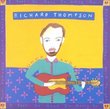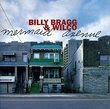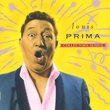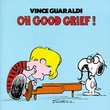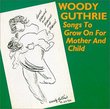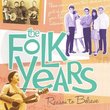| All Artists: Woody Guthrie Title: This Land Is Your Land: The Asch Recordings, Vol. 1 Members Wishing: 4 Total Copies: 0 Label: Smithsonian Folkways Original Release Date: 2/18/1997 Release Date: 2/18/1997 Genres: Blues, Folk, Pop Style: Traditional Folk Number of Discs: 1 SwapaCD Credits: 1 UPC: 093074010020 |
Search - Woody Guthrie :: This Land Is Your Land: The Asch Recordings, Vol. 1
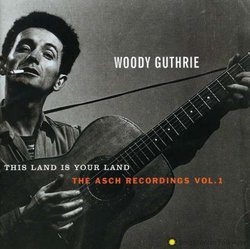 | Woody Guthrie This Land Is Your Land: The Asch Recordings, Vol. 1 Genres: Blues, Folk, Pop
The first in a series of four, this recording presents many of Woody Guthrie's best known songs taken from the original masters. Included here is the original version of Woody's anthem "This Land Is Your Land," which conta... more » |
Larger Image |
CD DetailsSynopsis
Album Description The first in a series of four, this recording presents many of Woody Guthrie's best known songs taken from the original masters. Included here is the original version of Woody's anthem "This Land Is Your Land," which contains never-before issued lyrics. A major force in the urban folk song revival, Guthrie created an intimate portrait of America - its land and people. He has influenced many contemporary artists, among them Bob Dylan, Phil Ochs, Billy Bragg, and Bruce Springsteen. During the 1930s and 40s, Woody Guthrie wrote more than a thousand songs, recording hundreds of them for Folkways founder Moses Asch. The surviving masters now reside in the Folkways archive at the Smithsonian Institution. Running time: 72 minutes; 36-page booklet includes historical and biographical notes on Woody Guthrie. Compiled by Jeff Place and Guy Logsdon. "The single finest Guthrie Collection Available." --Music Central Similarly Requested CDs
|
Member CD ReviewsReviewed on 4/8/2007... woody--stunning. 1 of 1 member(s) found this review helpful. Reviewed on 7/26/2006... A must for the Woodie Guthrie fan.
CD ReviewsMaybe the best single CD of Woody that exists... William E. Adams | Midland, Texas USA | 12/16/2001 (5 out of 5 stars) "This is a great collection, lovingly done by The Smithsonian staff that is saving and cleaning and re-issuing the old Folkways catalogue. The booklet alone is worth the purchase price, but the music is excellent as well. Woody's recording career only went a little over ten years due to the coming of the Chorea in the early l950's, but he still laid down too many good tracks to be confined to one album. However, if you can only afford one of his releases, this is a wonderful choice. Second choice would be the re-issue of "Dust Bowl Ballads" on Buddah Records...this was his l940 "concept" album that has had a profound effect on folk, country and protest music ever since. Also, I have to recommend a book to Guthrie fans: "Woody, Cisco and Me" by Jim Longhi. It shows the slice of Woody's life that involved a few journeys on Merchant Marine ships during WWII. It is an essential companion piece to Joe Klein's "Life of Woody Guthrie."" Woody Guthrie... Start here... ewomack | MN USA | 10/01/2005 (5 out of 5 stars) "Woody Guthrie has become an indelible part of 20th century American history. Many probably romanticize his story well beyond the realities of his life, but Guthrie's influence remains strong and unyielding. Many also know of the mesmerizing effect Guthrie's music had on the young Bob Dylan (see Dylan's "Chronicles, Vol 1"). Others soon jumped on the wagon, and Guthrie ended up speaking to subsequent generations long after his death in 1967.
Guthrie sang folk songs. Some he wrote himself, some he borrowed from others. Doing this today would result in heavy brickbat throwing along with accusations of "rip off!" But in Guthrie's day folk music meant borrowing. Times have changed. Long before constrictive copyright laws and the bizarre idea that artists must possess 100% originality to have relevance songs roamed the land in many forms. Folk songs came with a collective license (somewhat similar to today's Open Source software movement). It was not unusual for a singer to take another singer's music and put it to his or her own use. Guthrie did this. In fact, even Bob Dylan did this here and there on some of his earliest albums and in his Gaslight shows. That was folk music then. So some of the melodies on this CD may turn up on other folk singer's albums of the day. But that's okay. Nonetheless, Guthrie was a songwriter of startling orginality. His lyrics alone comprise one of the most impressive collections in popular music history. Their themes and subjects trace back to the themes of early American folk music. Guthrie sat comfortably in this tradition. But Guthrie stuck mostly to his times, and he absorbed the times and the people, especially the disenfranchised, and the legends of his own time. He wrote about the down and out, about scandals, about tragedies, and human nature. This CD showcases Guthrie's amazing versatilty and range as a folk singer. Many of the recordings date from the 1940s (though for sme no recording date exists). Three versions of Guthrie's most famous song, "This Land is Your Land" sit between some two dozen of Guthrie's best and well known songs. The second version includes the "Private Property" lyrics (they weren't included in the original release of the song and they rarely get sung in contemporary performance). There are also songs for children ("Car Song", "Why, O Why?"), songs about World War II, Hitler, Charles Lindbergh (particularly his infamous visit to Hitler and the "America First" organization), the Spanish Civil War ("Jarama Valley"), American landmarks and landscapes ("Grand Coulee Dam", "New York Town", "Pastures of Plenty"), working (the hilarious "Talking Hard Work"), legends ("Jesse James"), lonliness ("Hobo's Lullaby", "I Ain't Got Nobody", "Hard, Ain't it Hard"), tragedies (specifically sunken ships; "When That Great Ship Went Down", "Sinking of the Reuben James"), and even Jesus Christ. Nothing from Guthrie's time seems out of his scope. Guthrie's voice may not appeal to everyone. But it contains a drawl and an accent that speaks directly to the themes he sings about. Guthrie would not have "worked" as a swooning crooning nightingale (a similar argument stands for Bob Dylan's voice). His voice contains grit, experience, and unpolished raw personality. These aren't Broadway songs and Guthie was no Broadway singer. His songs spoke to the average person (and also to the Smithsonian Institution's Moses Asch who recorded these tracks). Guthrie told it as it was. The song "Why, Oh Why?" says it best. In response to the impossible questions the song poses, Guthrie sings simply "Because, because, because, goodbye, goodbye, goodbye." Things are the way they are, but work and songs can act as a vehicle for change. Guthrie stands as a symbol of the meaning music can have for a person, a country, and a world." |

 Track Listings (27) - Disc #1
Track Listings (27) - Disc #1